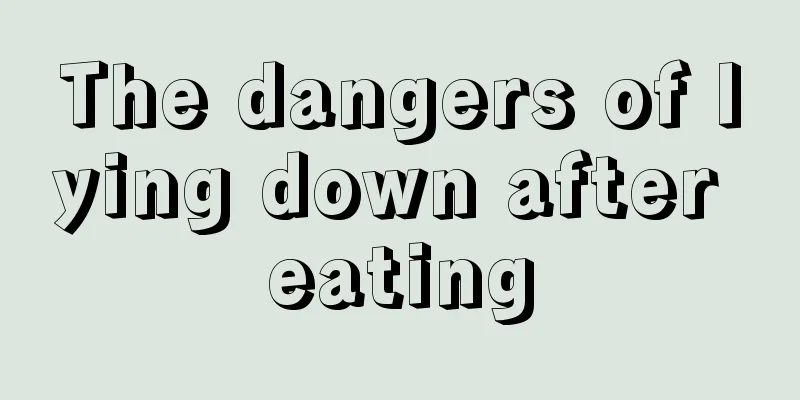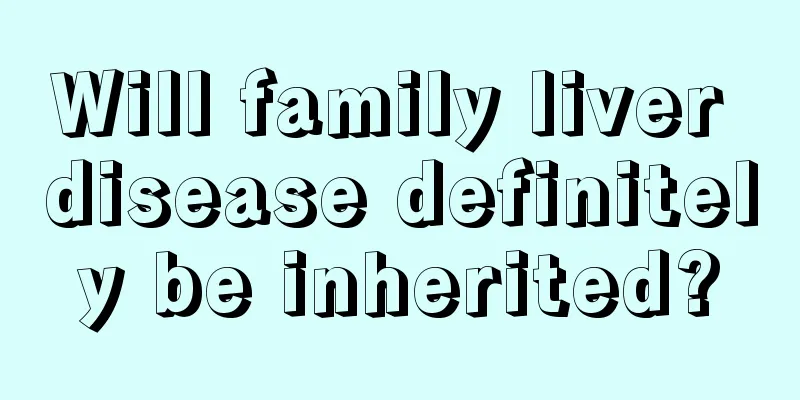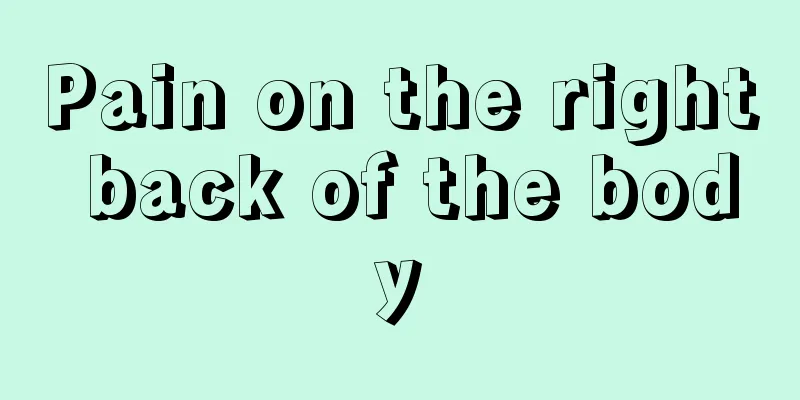The dangers of eating too much at dinner

|
The requirements for three meals a day are as follows: eat a full breakfast, eat a good lunch, and eat less dinner. You should master the following dietary principles, that is, you should not eat too much at dinner. If you eat too much at dinner, it will often lead to indigestion, weight gain, and a heavy burden on the stomach and intestines. Over time, it will easily lead to stomach problems and some vascular diseases. The dangers of eating too much at dinner 1. Eating too much at dinner will lead to no appetite in the morning. Eating too much at dinner will exceed the digestive capacity of the digestive function. If you don't exercise and fall asleep immediately, the food will not be completely digested and absorbed. Too much food residue in the digestive tract will lead to a loss of appetite in the morning, and you will eat a lot at noon, and thus, a vicious cycle will begin. 2. Eating too much at dinner causes gastrointestinal problems Occasionally eating too much may not feel anything unusual, but if you eat a lot at dinner every day, your digestive function will decline over time, and gastrointestinal function will be impaired, which will lead to gastrointestinal diseases, gastritis, gastric ulcers, enteritis, constipation, colon cancer, etc. 3. Eating too much at dinner can lead to vascular disease A large amount of food residues retained in the large intestine will be decomposed by bacteria and produce many toxic and harmful substances. Among them, when protein is decomposed by bacteria, a substance called "phenol" will be produced. This substance will enter the human blood through the intestinal wall and make people prone to cardiovascular and cerebrovascular diseases. 4. Eating too much at dinner can easily lead to obesity Our body is very smart. When it runs out of energy, it will convert the food we eat into energy. When it has enough energy, the body will automatically synthesize fat and store it under the skin, around the internal organs, in the abdominal cavity, etc., causing obesity, which can cause many diseases. One thing to be clear is that: "Obesity is a disease." 5. Eating too much at dinner can cause pancreatitis When food flows from the stomach into the duodenum, our pancreas secretes enzymes such as trypsin and pancreatic lipase (enzymes that digest and break down proteins and fats) to digest food. There is a tube connecting the small intestine and the pancreas so that the enzymes can enter the small intestine smoothly. There is a function at the exit of the small intestine that only allows enzymes to enter the small intestine and does not allow the chyme in the small intestine to flow into the tube and enter the pancreas. However, because of eating too much, there are too many things in the small intestine, which will cause the function of allowing only input but not output to be lost. As a result, various substances in the small intestine flow into the pancreas, causing inflammation, and acute pancreatitis occurs. In severe cases, one may go into shock during sleep! 6. Eating too much at dinner can lead to diabetes When people eat, our pancreas will receive signals to secrete insulin. The more we eat, the more insulin will be secreted. The more we eat, the more the pancreas will be stimulated. If we eat too much for a long time, the long-term stimulated pancreas will also get tired. When it is exhausted, it will stop working, and this is when diabetes comes. 7. Eating too much at dinner can affect your sleep Too much food in the stomach will affect the surrounding organs. These effects will transmit signals to the brain, making the corresponding cells in the brain active, causing nightmares and restless sleep. It is not difficult to find that if you have a lot of dreams in one night, you will definitely be in a bad mood the next day, and in severe cases you will have headaches, trance, etc. 8. Eating too much for dinner can easily lead to stones Under normal circumstances, the peak period of urination for the human body is 4-5 hours after a meal. Eating dinner late or eating too late can easily lead to stones. Because when people sleep, urine will accumulate in the urinary tract and cannot be discharged from the body in time. As food is digested, excess calcium is excreted into the urine. As sleep deepens and lasts longer, the calcium in the urine continues to increase, eventually forming urinary stones. |
<<: Can I lose weight by skipping dinner
>>: Does skipping dinner help lose weight?
Recommend
Breast cancer likes "this type of breasts" the most! These 5 types of people should be careful!
Breast cancer is not age-specific. Breast structu...
What causes numbness in hands and legs? It turns out these 6 factors are responsible
Numbness in the hands and legs is a common condit...
How to clean yellow stains on bed sheets after sleeping for a long time
No matter what material the sheets are made of, t...
The flesh on both sides of the shoulders is very thick
Thick flesh on both sides of the shoulders will g...
What are the effects of silk pillow
Many friends are very confused when choosing pill...
What are the factors that induce nasopharyngeal cancer?
What is the cause of nasopharyngeal cancer? Nasop...
Do you have a lot of pimples on the back of your neck?
Acne is something that most people don't like...
Is there any way to gain weight?
Many girls cannot accept having a little extra fa...
Is it good to take a bath with mugwort and honeysuckle
Mugwort and honeysuckle are both common things in...
What are the contraindications of Trimebutine Maleate Capsules?
Trimebutine maleate capsules are a very commonly ...
It is healthiest to "suffer" appropriately in cold winter
In the cold winter, people are always constantly ...
The stool is flocculent and fluffy
Don’t ever think that defecation is a form of exc...
What are the drug treatments for ovarian cancer
Ovarian cancer is a type of tumor in the female r...
How to use the essence
We may often see essence in our lives. It is a su...
How to effectively prevent fibroids
Everyone has a carcinogenic factor in their body....









